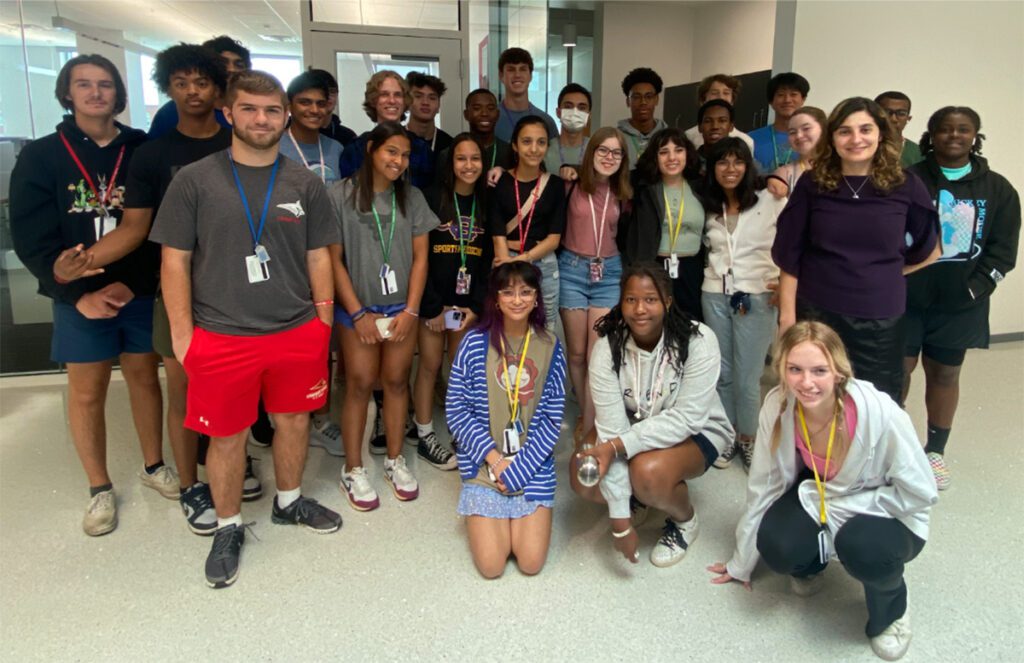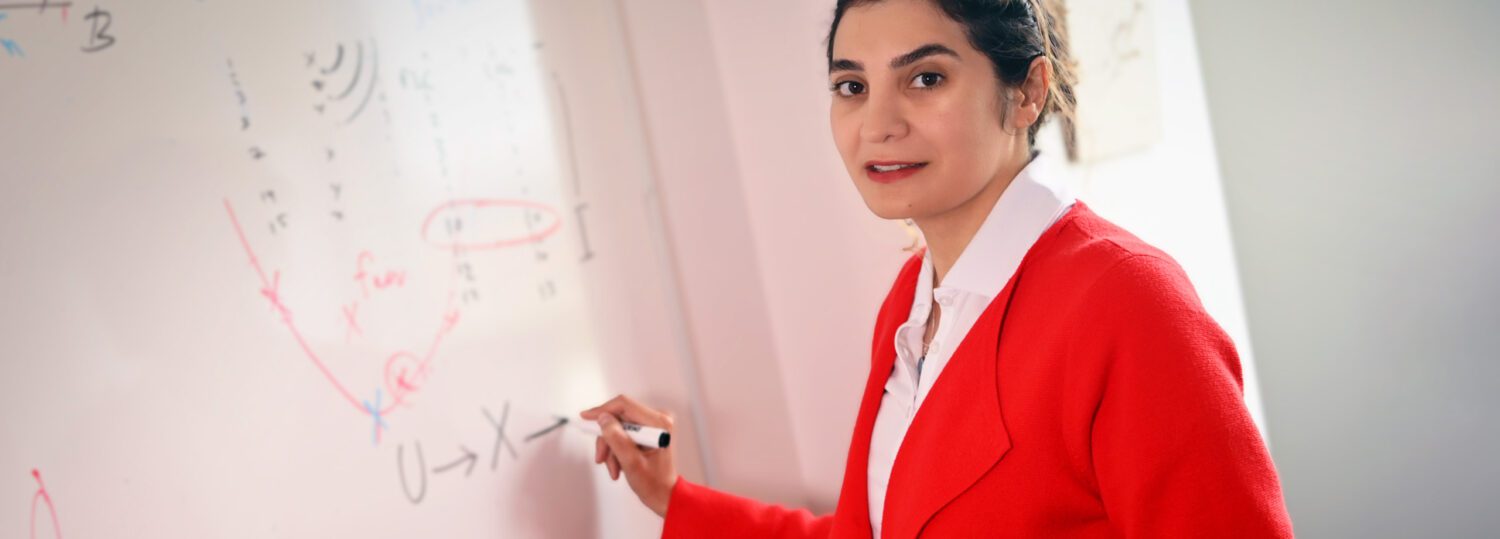When people get asked who the most thrilling people in the world are, many say rock stars, pro athletes and celebrities. But according to ISE assistant professor Sara Shashaani, you can add engineers to that list. As the daughter of a mechanical engineer, she grew up watching her father’s excitement for solving problems. “From an early age, my father gave me the impression that engineers are the coolest people on earth,” confessed Shashaani. But what gives engineers such a distinction? To her, it’s the fact that they spend each day solving real-world problems that improve everyone’s daily lives. “I can tell you that I hear time and time again from my non-engineer colleagues that it is always the engineers getting things done in the real world,” she shared.
Shashaani’s story with industrial engineering began as she entered college. She enjoyed learning many topics, from mathematical modeling to how parts get built to human interaction with systems and even economics. She believes that knowing a little about these topics is vital to understanding the “big picture” when analyzing how systems work. During that same time, one of her professors encouraged her to join his research team studying production line scheduling, which she found fascinating. After a successful project experience and publication, he urged her to continue with research and nudged her towards graduate school. She completed master’s and doctoral degrees at Purdue University. After graduation, Shashaani was ambitious to go out to the world and make an impact. She received a job offer from the research and development department of a world-renowned automobile manufacturing company. But during the interviews and visits, she quickly realized that the main goal in industry is to increase profit, and for that it may be acceptable to solve a problem without understanding it well. This reality and the freedom to choose what research areas to invest her time and energy in led her back to academia.
After working as a postdoctoral fellow at the Department of Industrial and Operations Engineering at the University of Michigan, Shashaani joined NC State at the beginning of 2019. She chose the Wolfpack because she knew NC State had a popular industrial and systems engineering program. “I had met some of my current colleagues in conferences and found the topics of interest and the vision for where ISE wanted to be in the future very appealing,” recalled Shashaani. “My attraction to the Triangle and the University was definitely amplified after my visit for an interview.” She found North Carolina to be an underrated and beautiful state and discovered North Carolinians to be very warm and welcoming. “Beyond that, I am inspired by how NC State contributes to the well-being of the state, the nation and the world,” she said.
Currently, Shashaani uses data and simulations to enable informed decisions for heavily uncertain infrastructure systems, such as a manufacturing processes, wind or solar power generation, coastal communities’ urban or agricultural developments, or siting new roads, warehouses, airports, ports, etc. Making optimal decisions for such systems is tricky because it requires a decent understanding of how robust a decision would be to the uncertainties in the system. She refers to these problems broadly as “Simulation Optimization.” Shashaani is the co-creator of an open-source software called SimOpt and publicly accessible to run and compare existing simulation optimization solvers to optimize several low-to-moderate dimensional simulations. To improve predictions and robustness of complex systems, Shashaani is also designing algorithms that, via simulation-like ideas, determine which of the many variables collected are the most important ones for decision-making.

Shashaani is passionate about leading students, especially women and minorities, to success and recognition. Two groups of her students in the simulation course (ISE 562) last Spring won first place and received an honorable mention in the 2022 international Student Simio competition. This win is the first time ISE placed first in this popular global competition. Recently, her Ph.D. students have also been recognized for excellence in the department and beyond. She has mentored many undergraduate students at ISE for research, one of whom was a finalist in a 2021 Student Paper Award at INFORMS Service Sciences. Shashaani offers some advice for those considering graduate school or research-driven careers. “Doing research may not be ideal for everyone because it is tackling a question you cannot guarantee will actually have an answer,” she explained. “You will enjoy and be successful at doing research if you have these qualities: being comfortable with not knowing, curiosity, and perseverance when things don’t work.”
Shashaani believes that as an engineer, she and her fellow academics should also help improve societal problems. “It is time that people with college/higher education build bridges to communities to fight misinformation and increase trust in what science and engineering can offer to build a better world for everyone,” she explained. In a new research initiative, she plans to engage with agriculture and farming communities to improve their operations’ resiliency. She is also concerned for the environment and the consequence of our small daily choices. “I imagine, for instance, how we could contribute to environmental sustainability if we stop using disposable coffee cups or straws. Is that hard? Not really. Is that inconvenient? Maybe at the beginning, but eventually no.” At the same time, she is also concerned about problem solvers. “I think as the world throws many reasons at us every day to be anxious, it is becoming increasingly important to take care of our mental well-being,” shared Shashaani. “This always starts by asking ourselves, how can I make myself feel better?” If you can relate, she has some tips and encourages you to drop her an email (sshasha2@ncsu.edu) if you would like to chat more.

